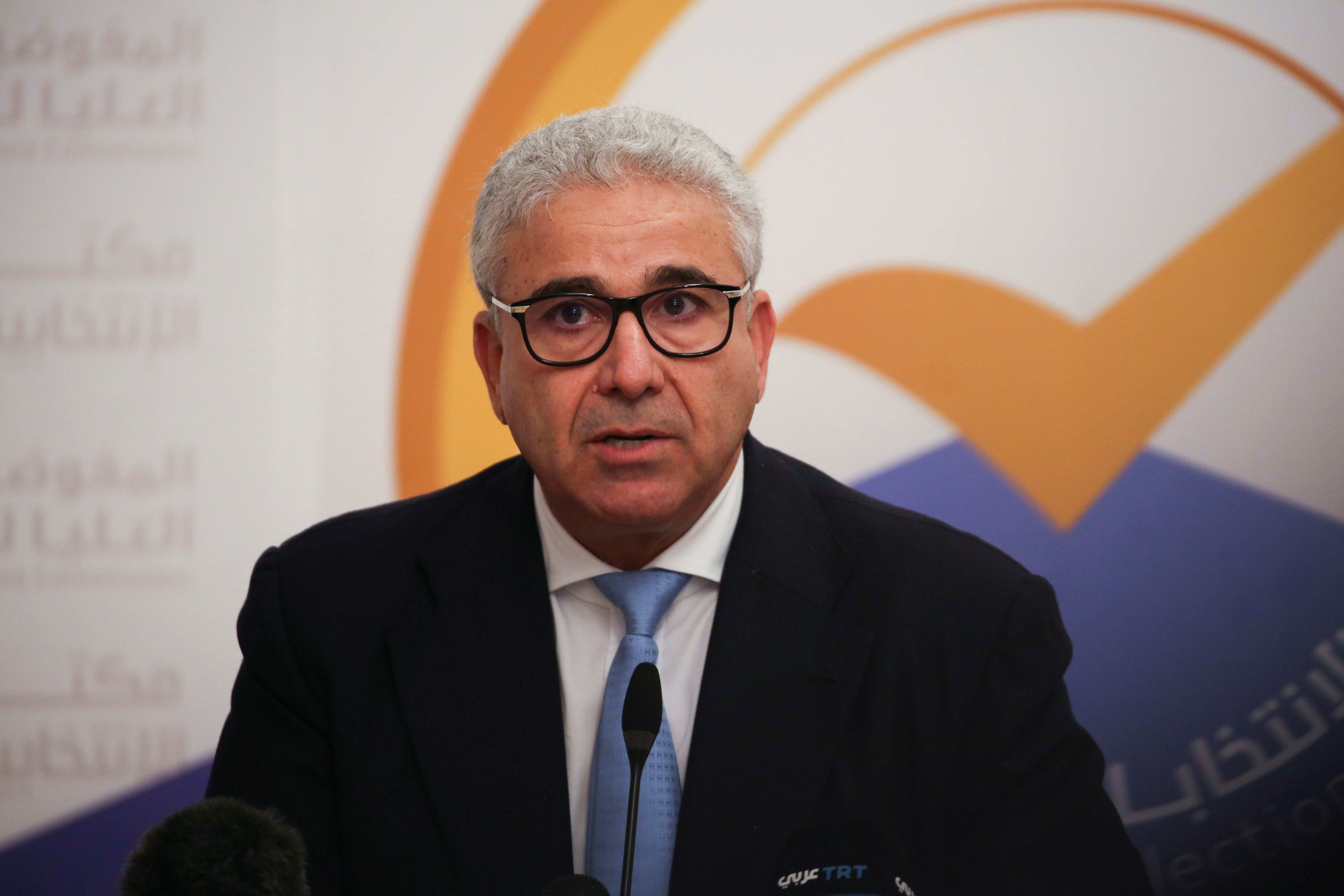
Libya has been mired in instability since a NATO-backed uprising removed longtime ruler Muammar Gaddafi in 2011.
The oil-rich country split between warring factions in the east and the west in 2014, but last year the transfer of power to a new interim Government of National Unity (GNU) raised hopes for peace and the reunification of the country and its institutions.
Now, a new power struggle has raised fears of further instability, including the return of parallel administrations and the risk of an armed confrontation.
Why did elections fail?
Abdul Hamid Dbeibah was installed in March last year as head of the United Nations-backed GNU in the capital, Tripoli, and was tasked with leading the country to national elections on December 24.
But after months of uncertainty, the electoral commission on the eve of the polls suggested they be pushed back, as a parliamentary committee tasked with overseeing the process said it was impossible to hold the vote as originally planned.
The vote was ultimately cancelled amid disputes between rival factions on laws governing the poll and disagreements over the candidates. The Tobruk-based parliament, which mostly backed eastern forces during the country’s war, declared the GNU invalid.
Parliament speaker Aguila Saleh, who was a presidential candidate, had issued a law setting a first round of the presidential election followed by parliamentary polls a month later.
Political institutions rejected the law, accusing Saleh of passing it without a proper parliamentary process, while others rejected holding the presidential vote first, saying it would mean the election would come down to a winner-take-all contest.
What’s the latest power struggle?
On Thursday, the Tobruk-based House of Representatives appointed former interior minister Fathi Bashagha as the new prime minister, saying this decision followed Dbeibah’s failure to hold the polls.
Bashagha flew to Tripoli from Tobruk, thanking Dbeibah for his work and pledging “to open a new chapter” and “reach out to everyone”.
But Dbeibah, who this week survived an apparent assassination attempt, has rejected the attempts to replace him. He has said he would “accept no new transitional phase or parallel authority” and would hand over power only to an elected government.
He also described the parliament’s move as an attempt to enter Tripoli by force and promised to draft a new election law to solve the political crisis.

What does the East-based administration want?
Saleh and other east-based legislators on Thursday voted in favour of a set of constitutional amendments that put forward a new plan for the country’s transition to a democratically elected government.
The amendments envisage the creation of a new electoral commission and the appointment of a 24-member committee, representing the country’s all three regions, to draft a new constitution.
The legislators have also argued the mandate of Dbeibah’s government ended on December 24. They say the interim leader became a polarising figure since he announced in November his presidential bid, breaking his pledge not to run in elections when he was appointed as interim prime minister.
Bashagha stands as a powerful figure in western Libya, and is believed to have links to armed militias in Misrata that played a key role in defending Tripoli against a 2019 military offensive from the east led by renegade military commander Khalifa Haftar.

What steps has Dbeibah taken so far?
Dbeibah has warned that naming a new prime minister would lead the country back to “division and chaos” after nearly two years of relative calm.
He also called for street protests to denounce the appointment of a new transitional government, adding that he has started consultations to agree on a new roadmap to hold elections in June, the date the UN mission in Libya wants for a rescheduled vote.

How has the UN reacted?
The UN, Western powers and even some members of parliament had previously called for Dbeibah to stay in his role until the election.
Asked during a daily press briefing on Thursday whether the UN continued to recognise Dbeibah as interim prime minister after Bashagha’s appointment, spokesman Stephane Dujarric said “the short answer is yes”.
He added, however, that the UN’s special adviser on Libya, Stephanie Williams, was “back in Tripoli, where she is engaging with critical stakeholders in Libya to facilitate an agreement on a path forward”.
“We are trying to get details of the decision made by the other legislative body,” Dujarric said.







